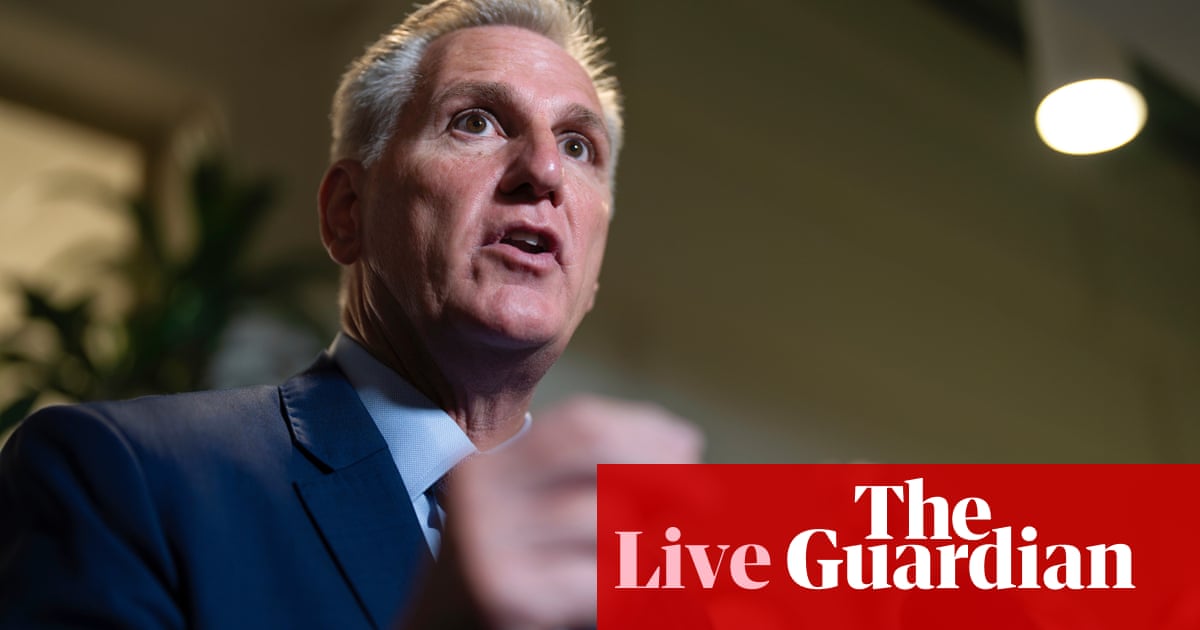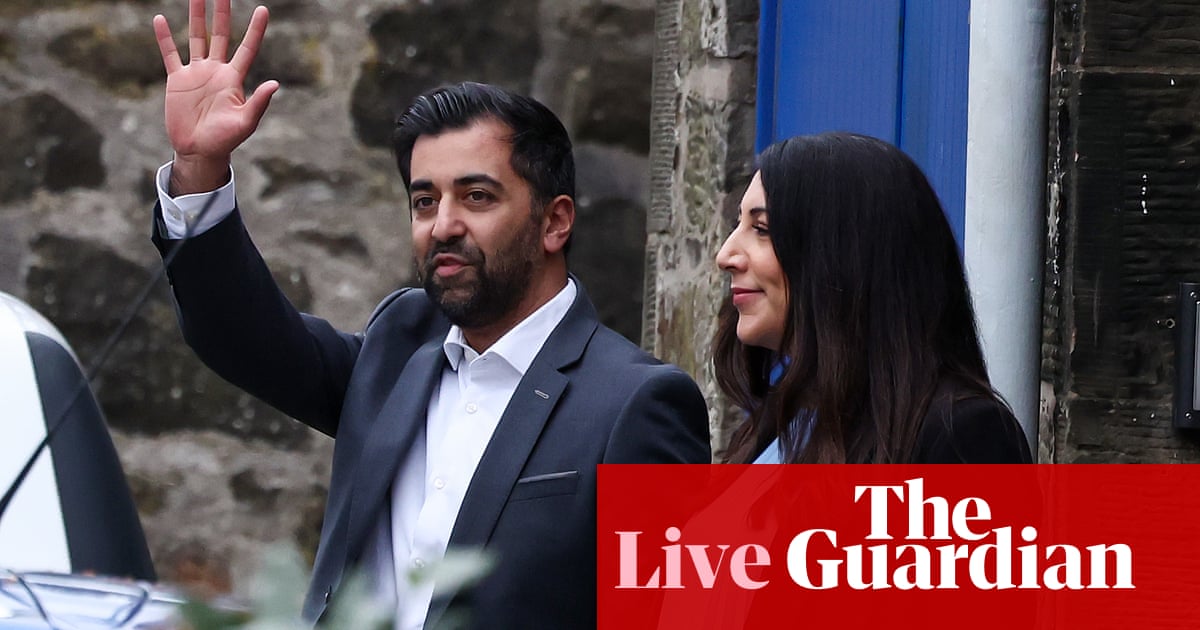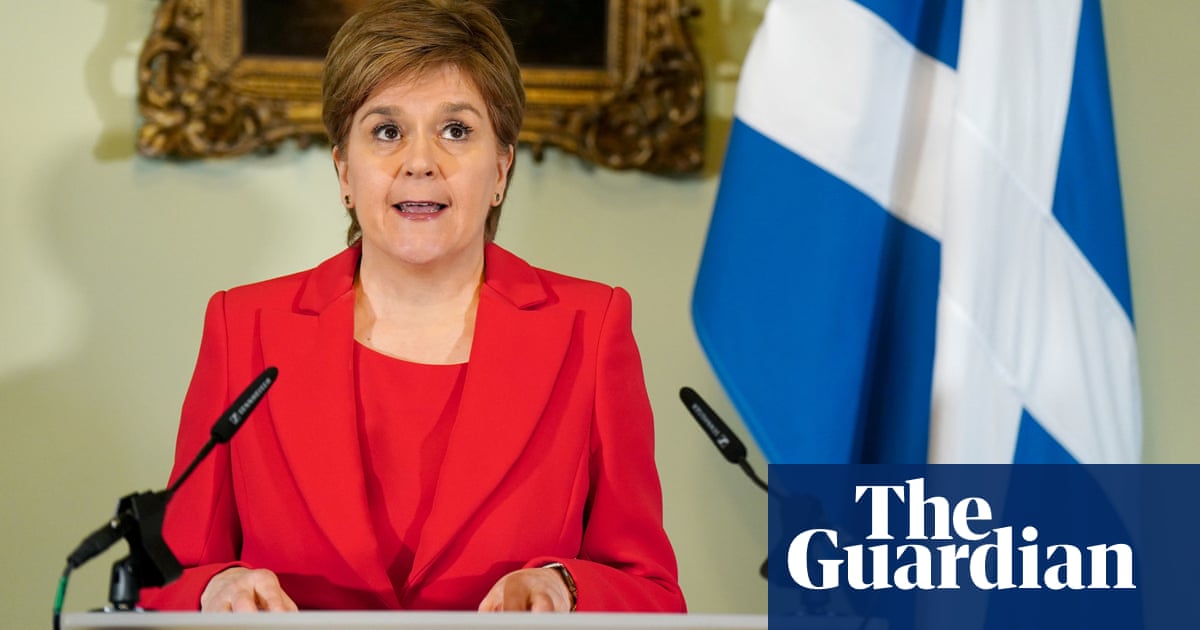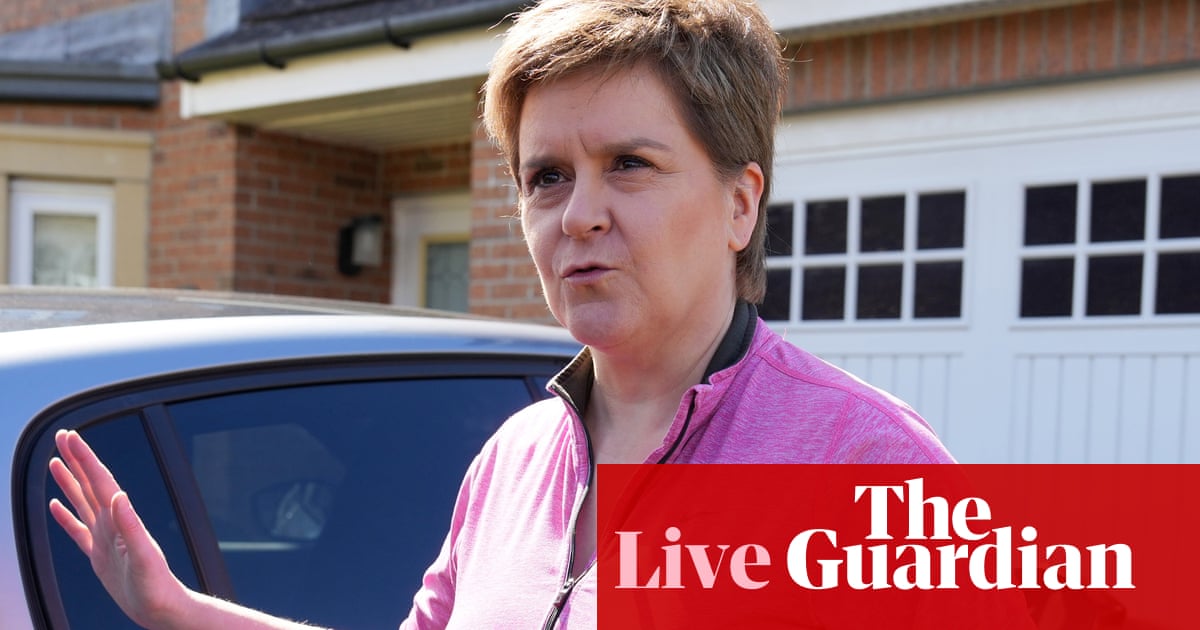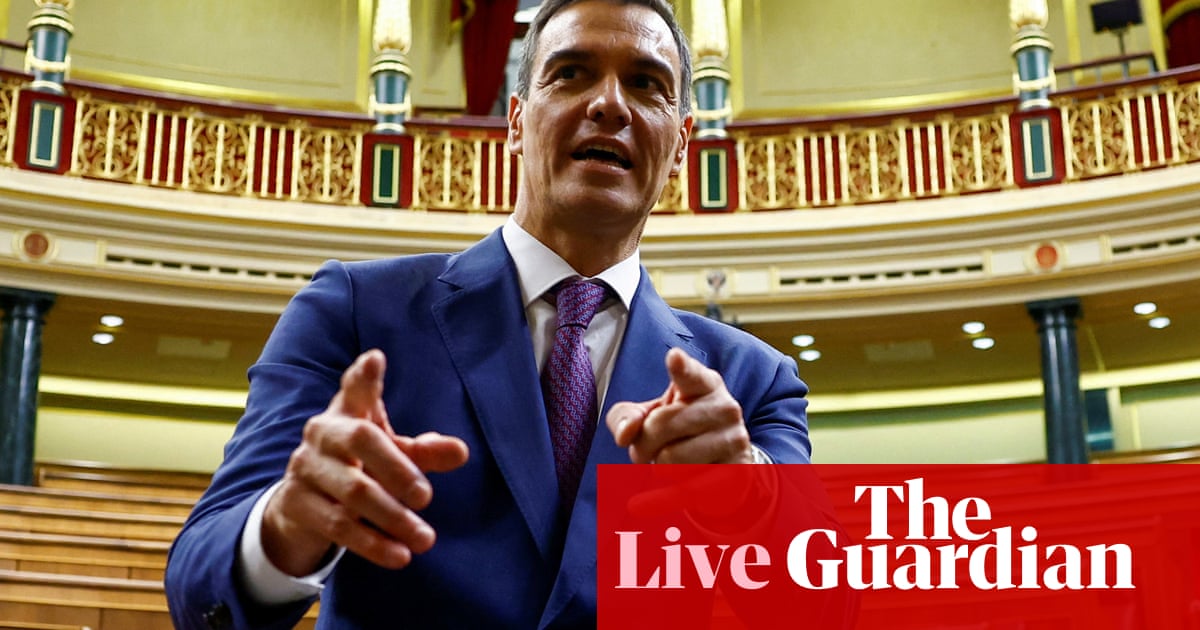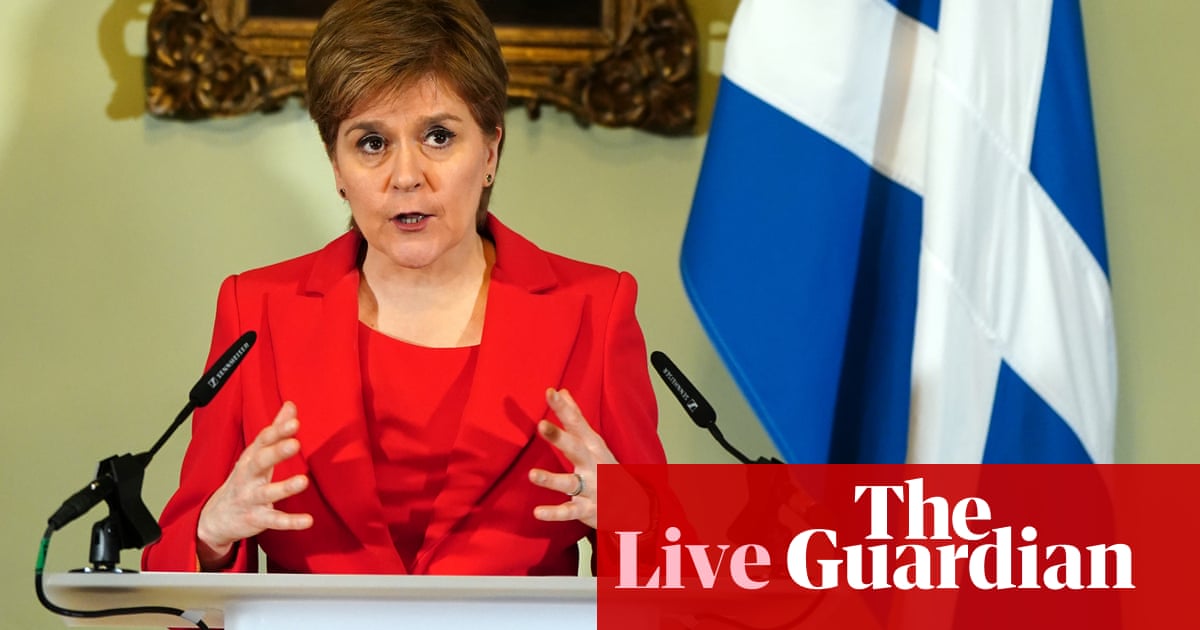
Sturgeon says she has been "wrestling" with resignation for "some weeks"
The Scottish first minister has set out her reasons for resigning and was at pains to stress that it is not a reaction to “short-term pressures”.
Nicola Sturgeon admitted there were “difficult issues” confronting the government but said she has “plenty of experience to draw on” in “soldiering on when walking away would be the simpler option”.
She said:
This decision comes from a deeper and longer-term assessment. I know it might seem sudden but I have been wrestling with it, albeit with oscillating levels of intensity, for some weeks.
Essentially I’ve been trying to answer two questions. Is carrying on right for me? And, more importantly, is me carrying on right for the country, for my party and for the independence cause I have devoted my life to?
I understand why some will automatically answer ‘yes’ to that second question but, in truth, I have been having to work harder in recent times to convince myself that the answer to either of them when examined deeply is yes and I’ve reached the conclusion that it’s not.
Evening summary
It’s almost 5pm in Westminster. Here is a roundup of the day’s main news stories:
Nicola Sturgeon will stand down as first minister of Scotland, she has announced at a press conference. In a shock decision, Scotland’s longest-serving first minister said she had instructed the Scottish National party (SNP) to begin the process of electing a new leader and would remain in office until her successor was chosen. The SNP leader has had a series of political setbacks recently, including the UK supreme court defeat of her plans for a fresh independence referendum and a damaging row over a double rapist being sent to a female jail after announcing she was a trans woman.
The Scottish first minister set out her reasons for resigning and was at pains to stress that it is not a reaction to “short-term pressures”. Sturgeon admitted there were “difficult issues” confronting the government but said she had “plenty of experience to draw on” in “soldiering on when walking away would be the simpler option”.
A new SNP leader could reunite the independence movement, Sturgeon’s predecessor Alex Salmond has said. Asked on BBC Radio 4’s World At One programme whether he saw an opportunity for his rival party Alba, Salmond said: “Well, what I see as an opportunity is to reset the independence movement.” He noted it depended “a great deal on who succeeds” Sturgeon.
The Scottish Conservative leader, Douglas Ross, said Sturgeon “refused to accept the result” of the 2014 independence referendum and her tenure as first minister was marked with “relentless agitating” for another referendum.
The Scottish Labour leader, Anas Sarwar, said Nicola Sturgeon was an “able politician” who had led Scotland through some of the most “challenging times” in recent history. He said: “It is right that today we pay tribute to those achievements, particularly during the pandemic. Regardless of our differences, she is an able politician who has stood at the forefront of Scottish politics for more than 20 years. On a human level that is worthy of respect and thanks.”
The pro-independence leader of Catalonia, the Spanish region that launched an unsuccessful, unilateral bid to secede from the rest of Spain in late 2017, also paid tribute to Sturgeon’s leadership and the example she had set for like-minded movements. “Thank you, Nicola Sturgeon, for your courage and political commitment to progress, social justice and your tireless struggle for freedom,” Pere Aragonès wrote on Twitter. “Your leadership will continue inspiring independence movements. You will always have Catalonia as an ally.”
Keir Starmer has said Jeremy Corbyn will not stand as a Labour party candidate at the next general election. Asked by reporters whether he could say “categorically” whether or not his predecessor would stand for the party at the next election, the Labour leader said: “Let me be very clear about that; Jeremy Corbyn will not stand for Labour at the next general election, as a Labour party candidate.”
Dame Margaret Hodge said Labour has “moved on from the very dark days of October 2020 when the EHRC judged us to be a party that was discriminating against Jews”. Her comments came after the Equality and Human Rights Commission watchdog said it was no longer monitoring Labour after it made the changes demanded over its law-breaking handling of antisemitism under Corbyn.
Talks between teaching unions and the education secretary, Gillian Keegan, have ended without progress yet again, prompting warnings that further strike action in schools in England seems “inevitable”. After the meeting, which lasted an hour and 20 minutes, the unions said the government had put no new offer on the table, prompting warnings of a possible escalation in strike action.
Negotiations with the Treasury over public spending levels are always an uphill battle, the defence secretary has acknowledged, amid reports he is looking for an increase of up to £11bn in defence spending. Ben Wallace said soaring inflation was hitting the Ministry of Defence’s real-terms budget particularly hard, dismissing suggestions he would resign if the chancellor, Jeremy Hunt, refused to provide the nominal increase he was looking for.
A report by the government’s independent watchdog on surveillance found that British police are leaving themselves open to spying by Beijing because of their reliance on Chinese-made cameras. Most forces in England and Wales use camera equipment that is either made in China or contains important Chinese components, the biometrics and surveillance camera commissioner has warned.
The Liberal Democrats have delivered 48,000 of their campaign leaflets to Tory MP Lee Anderson’s constituency, after he promised to deliver them to voters himself. Last week, the Lib Dems announced a new advertising blitz with posters highlighting the controversial views of the new Conservative party chair, including his backing the death penalty and suggesting people who use food banks “can’t cook properly”.
More than 2,500 refugees and asylum seekers have crossed the Channel to the UK so far this year. Government figures show 204 people made the journey on Tuesday in five boats, taking the provisional 2023 total to date to 2,517.
That’s it from me, Tom Ambrose, and indeed the UK politics live blog for today. Thanks for following along on what turned out to be a busy day of political news. Goodbye for now.
More than 2,500 people have crossed the Channel to the UK in small boats so far this year.
Government figures show 204 people made the journey on Tuesday in five boats, taking the provisional 2023 total to date to 2,517.
This is more than 1,000 higher than the total number of crossings for January and February combined in 2022 (1,482), PA Media reported.
The busiest day of 2023 so far was 25 January when 321 people were brought to the UK in eight boats.
Nicola Sturgeon took Scotland, and the UK, by surprise with her unexpected resignation.
In her speech on Wednesday morning she blamed two factors: her own waning energy levels and the way in which Scottish politics has become polarised around her as a leader.
The first minister and SNP leader acknowledged the difficulty of keeping the party together on the sensitive question of whether the next election should be treated as a de facto independence vote.
She also spoke of how important it was for the next leader to reach across the political divide to supporters of other parties.
Here is what she said.
The EIS teaching union has rejected the latest pay offer from the Scottish government and council leaders, PA Media reports.
The new offer announced on Tuesday evening involves teachers who earn up to £80,000 given a 6% pay boost backdated to April 2022 and a further 5.5% from the start of the 2023 financial year, representing 11.5% over two years.
It was rejected at a special meeting of the EIS salaries committee on Wednesday, with the union confirming its programme of strikes will continue “until a more credible offer is put on the negotiating table”.
The Liberal Democrats have delivered 48,000 of their campaign leaflets to Tory MP Lee Anderson’s constituency, after he promised to deliver them to voters himself.
Last week, the Lib Dems announced a new advertising blitz with posters highlighting the controversial views of the new Conservative party chair, including his backing the death penalty and suggesting people who use food banks “can’t cook properly”.
On Saturday, Anderson posted the new flyer on Twitter and said: “Please drop me 48,000 off and I will deliver them myself in Ashfield.”
The Lib Dems followed through and today dropped off boxes of the leaflets at his office in the Nottinghamshire district of Ashfield.
Anderson won the former “red wall” seat for the Conservatives in 2019 with an 11.7% majority.
As Nicola Sturgeon resigns as first minister, support for Scottish independence is the highest it has been since 2021, according to polls.
The SNP MP Joanna Cherry has called for a “neutral caretaker CEO” to take over from Nicola Sturgeon’s husband, Peter Murrell.
Cherry tweeted:
The SNP leadership and party management have been deeply bound together.
I cannot see any circumstances in which Peter Murrell can continue as chief executive under a new leader who must be free to choose a successor.
Meantime we need a neutral caretaker CEO.
The pro-independence leader of Catalonia, the Spanish region that launched an unsuccessful, unilateral bid to secede from the rest of Spain in late 2017, also paid tribute to Sturgeon’s leadership and the example she had set for like-minded movements.
“Thank you, Nicola Sturgeon, for your courage and political commitment to progress, social justice and your tireless struggle for freedom,” Pere Aragonès wrote on Twitter. “Your leadership will continue inspiring independence movements. You will always have Catalonia as an ally.”
Pro-independence Catalans have long kept an eye on the situation in Scotland and have campaigned – fruitlessly – for a Scottish-style independence referendum jointly agreed by the central and regional governments.
But the Catalan independence movement has stalled over recent years amid continuing splits and squabbles between the two main pro-independence parties.
A survey published towards the end of last year by the Catalan government’s Centre for Opinion Studies found that 50% of Catalans wanted to remain part of Spain, while 42% favoured independence.
At the height of the crisis in October 2017, a survey by the same centre found that 48.7% of Catalans supported independence, while 43.6% did not.
Polling expert Prof Sir John Curtice told the BBC that Nicola Sturgeon was the most popular leader in Scotland and the SNP was still the dominant party in the electorate.
He said:
That said, however, her popularity is now as low as it has been at any point during her tenure as first minister.
She was very, very popular in the early months and years. That reached a point where roughly half the people thought she was doing OK and half thought she wasn’t.
She then got a very substantial boost during the pandemic when she was regarded as a very effective communicator and leader of her country, in contrast to Boris Johnson, but that’s been gradually diminishing.
Sturgeon came into office in November 2014 after the Scottish independence referendum.
New SNP leader could reunite independence movement, says Salmond
A new SNP leader could reunite the independence movement, Nicola Sturgeon’s predecessor Alex Salmond has said.
Asked on BBC Radio 4’s World At One programme whether he saw an opportunity for his rival party Alba, Salmond said:
Well, what I see as an opportunity is to reset the independence movement.
He noted it depended “a great deal on who succeeds” Sturgeon, but added:
If you get somebody who is looking to reunite the movement, perhaps through the vehicle of an independence convention, whereby you take a range of parties, and indeed cross-party movements, and bring it under the same tent, then that would be a highly significant move.
Not just by reuniting the movement, which would be a good idea, but also, I think, by separating the case for independence from the day-to-day business of government.
Nicola was very, very dominant within the SNP government in terms of decision-making, and that’s great when things are going well. But when things start to come unstuck, as they have been over the last few months, then one thing you have to be aware of is the cause of the case for independence suffering from the day to day problems of government.
Ian Blackford says he is “very saddened” by Nicola Sturgeon’s decision to stand down as Scotland’s first minister.
The Scottish MP and former leader of the SNP in Westminster told the BBC Radio 4’s World At One programme:
I’ve always had the opportunity of having a conversation with the first minister over the course of the last few days. And I have to say, I’m very saddened by the decision that she’s taken.
However, Blackford said it was “perfectly understandable given that Nicola has been in public life for so long”, adding:
But I’m just so grateful that she’s been in a position to lead us over the last few years and I think we should reflect on the leadership that she gave to us at the time of Covid.
On how much of a loss Sturgeon was to the SNP and its electoral prospects, he said:
She has laid the foundations, I believe, that will see the next leader be able to take the party, the movement, the country on to independence. So it’s about completing that journey.
She will move on to a new role, but she’ll still be part of the campaign, the argument for Scottish independence.
Talks between teaching unions and the education secretary, Gillian Keegan, have ended without progress yet again, prompting warnings that further strike action in schools in England seems “inevitable”.
Following the meeting, which lasted an hour and 20 minutes, the unions said the government had put no new offer on the table, prompting warnings of a possible escalation to the industrial action.
Strike action is already being taken by members of the National Education Union. But, with frustration growing at a lack of progress despite a series of meetings with the secretary of state, other unions are considering their next steps.
Geoff Barton, the general secretary of the Association of School and College Leaders, said:
While the tone of today’s talks signalled a greater sense of urgency on the part of the government, we have to report that once again there is no new offer to improve the inadequate pay settlement which has sparked the ongoing dispute.
There has been discussion about addressing systemic issues which drive unsustainable workload pressures on education staff but nothing concrete in this direction either. Unless pay and conditions are improved, the severe teacher shortages being experienced by many schools will worsen and so will the impact on the education of young people.
We cannot go on like this. Unless there is tangible progress towards an improved offer, the prospect of further strike action by NEU members is inevitable – and will lead to members of our union, and other education unions, also concluding that industrial action is the only option left.
Polling on Scottish independence has not moved as much as campaigners would like under Sturgeon’s leadership, Alex Salmond has suggested.
Speaking to BBC Radio 4’s World at One, he said:
Obviously, your objective is to get the country to independence. That’s how you measure success, or how far you take people along that road. We’re now at a point where independence is a near a majority opinion in Scotland. That’s occurred over the last 25 years. But people might well argue that there hasn’t been a distinctive shift over the last few years, and they might [ask] why that should be.
Nicola Sturgeon announces she is standing down as first minister of Scotland.





